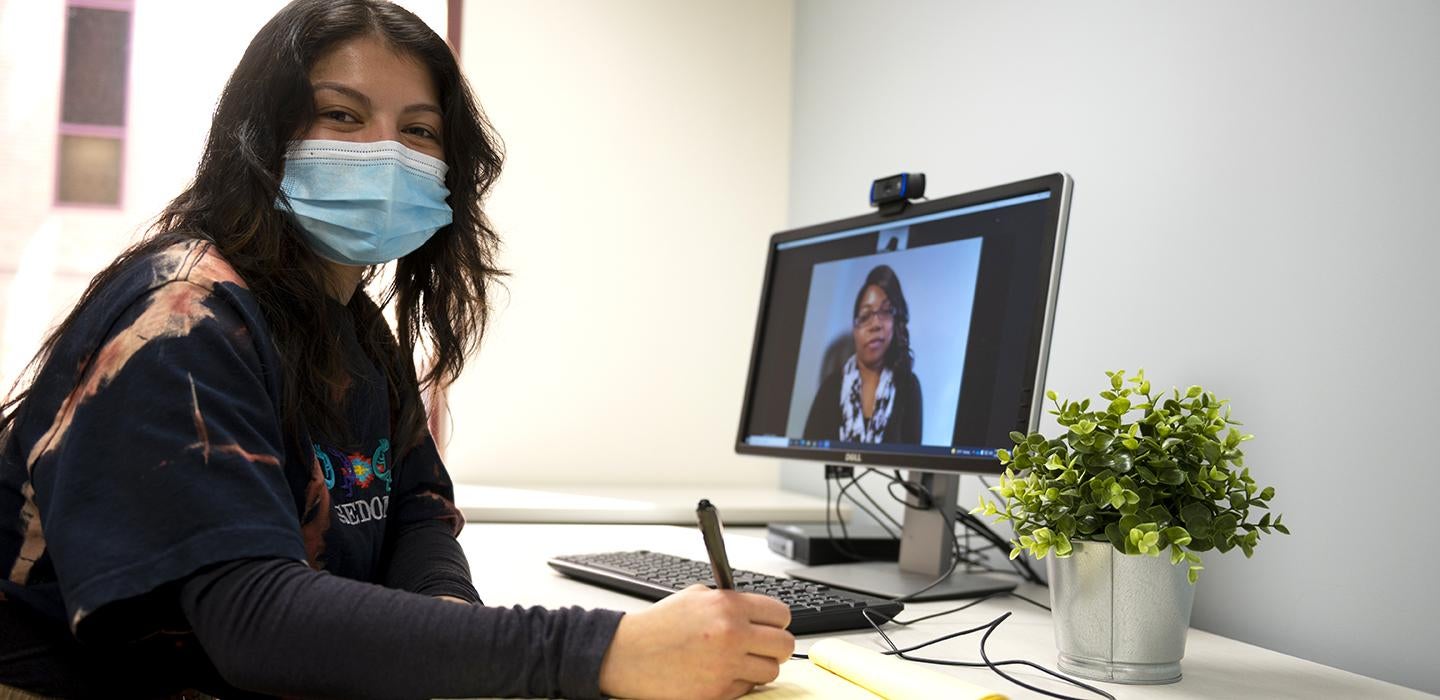
Subscribe to Pittwire Today
Get the most interesting and important stories from the University of Pittsburgh.Among other things, the internet has become a source of community-building, information sharing and polarization in the modern world. Increasingly it has also become a basic necessity for most Americans.
On April 22, the University of Pittsburgh's Office of the Chief Information Officer (CIO) hosted the Pennsylvania Broadband Symposium — a virtual event that brought together more than 50 academic, corporate, government and nonprofit organizations whose members are working to bridge the digital divide in Pennsylvania by making affordable high-speed internet service available in rural areas and underserved communities.
“The purpose of the symposium was to acknowledge this serious problem and bring together community, policy and thought leaders and practitioners to talk about broadband opportunities generally and specifically within Pennsylvania,” said Pitt CIO Mark Henderson. “Additionally, we wanted to create a forum where people can hear and understand what’s happening within the commonwealth, network with each other and ideally collaborate on strategies going forward.”
Pitt Information Technology (IT) partnered with the Office of Engagement and Community Affairs; the Institute for Cyber Law, Policy, and Security; the Institute of Politics; and other Pitt entities to address issues of equity and access — problems that have become exacerbated for underprivileged communities during COVID-19.
This is not the first time Pitt has partnered with others to help mitigate the effects COVID-19 has had on access to technology. Many of the participants in this symposium, including Carnegie Mellon University and KINBER, came together in November 2020 to provide free high-speed internet access to communities in need in the state.
“The pandemic shined a very bright light on how significant the inequities are,” said Henderson. “If you haven't had a computer in your house or appropriate connectivity to the resources you need to work, the ability to attend classes and learn, or seek and apply for jobs, [your everyday life] has been disrupted or nonexistent. Having broadband connectivity in today’s day and age is, in many instances, like having electricity, and that's across the commonwealth and the country.”
The program included keynote presentations and remarks from federal, state, regional and local partners including Heidi Norman, director of the Department of Innovation and Performance for the City of Pittsburgh, and Aadil Ginwala, chief of staff for the National Telecommunications and Information Administration.
Ginwala emphasized that internet access is a “people” issue versus a bipartisan one.
“We want people to have more power in their lives and for Pennsylvanians to work and live where they want and contribute to the larger economy and technology that's going to address the problem and stand the test of time to serve people well,” he said.
The event also included a networking fair and panel discussions centered on building an inclusive digital ecosystem, access and technologies, and policy solutions. Panelists included Juliet Fink-Yates, the city of Philadelphia's digital inclusion manager at the Office of Innovation and Technology, Iftekhar Kazi, vice president of IT and principal architect at UPMC, and Nathan Flood, president and CEO at KINBER.
Rachelle B. Chong, former commissioner of the Federal Communications Commission, and Lina Dostilio, Pitt’s vice chancellor of engagement and community affairs, offered closing remarks.
In addition to thanking participants, Henderson thanked his Pitt IT team for pushing the conversation forward.
“Kate Ulreich, the enterprise architects and Pitt IT did the heavy lifting in pulling this off,” said Henderson. “We thank everyone at the University and beyond who joined us in making this a successful and impactful event. Engaging in discussions like this is incredibly important and part of the investment required to level the digital playing field.”
He added, “Pitt IT is in service of the University community, Pittsburgh and beyond; it's part of our core mission to help whoever we can.”


